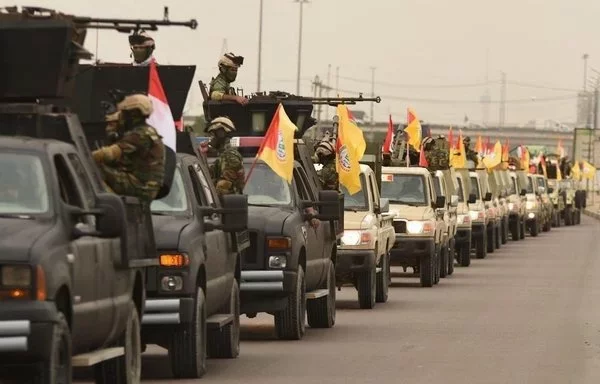Security
IRGC's proxies dig in, stockpile arms along Iraq-Syria border
Through the illicit transfer of fighters and weapons, Iran-aligned militias fuel instability and threaten Iraq's efforts to control its border with Syria.

By Anas al-Bar |
Iran-aligned Iraqi militias are increasing their offensive capabilities along the Iraq-Syria border, sources say, raising concerns about regional security.
While the militias claim their buildup is to counter "Islamic State of Iraq and Syria" (ISIS) infiltration, analysts say it is part of a broader strategy on the part of the Iranian regime to further regional instability.
Iran-backed militias are mobilizing in the western desert of Anbar province and along the border with Syria, claiming to counter terrorism, according to local media reports citing militia sources.
The militias have reportedly acquired radar-evading drones, loitering munitions and other advanced weaponry.
Analysts interpret the deployments and influx of new technology as a sign of the Iranian regime's continued efforts to destabilize the Middle East.
Iran-aligned Iraqi militias possess "highly advanced military capabilities," Ali al-Fatlawi, a senior member of the Harakat Ansar Allah al-Awfiya militia, has boasted.
Harakat Ansar Allah al-Awfiya is part of a new umbrella group comprised of multiple Iran-aligned armed factions, and is stationed along the international border between al-Qaim in Iraq and Albu Kamal in Syria.
For years, the Iranian regime has worked to establish a strong presence for its proxy forces on the Iraq-Syria border, supporting their expansion and influence.
Militias operate outside Iraqi law
Through the illicit transfer of fighters and Iranian weapons, these militias threaten Iraq's efforts to control its border, with Iraqi border-control activity conducted in indirect coordination with the Syrian Democratic Forces (SDF).
This coordination, to prevent cross-border terrorist infiltration, is carried out through the international coalition.
The Iran-aligned militias' smuggling activities also challenge Iraqi Prime Minister Mohammed Shia al-Sudani's assertion that decisions of war and peace rest solely with the state.
Al-Sudani has warned that any armed faction deviating from this principle will face the full force of the Iraqi government.
According to Iraqi Center for Strategic Studies director Ghazi Faisal Hussein, 34 Iran-aligned factions in Iraq operate outside Iraqi law and take orders only from the Islamic Revolutionary Guard Corps (IRGC).
These militias "openly declare loyalty to Iran's agenda" and the doctrine of Wilayat al-Faqih (Guardianship of the Jurist), which calls for loyalty to Iran's leader Ali Khamenei, he told Al-Fassel.
The IRGC continuously supplies its proxies with "drones, missiles and heavy weapons" to enhance their readiness for "stirring up chaos and regional conflicts from their bases along the border and in eastern Syria," he said.
This is intended to advance the interests of the Iranian regime at the expense of Iraq's sovereignty, security and border integrity, Hussein added.
God help Iraq and its people...Allah is all-sufficient for us, and the best one to trust in.
May God guide people and purify hearts. I wish safety for all.